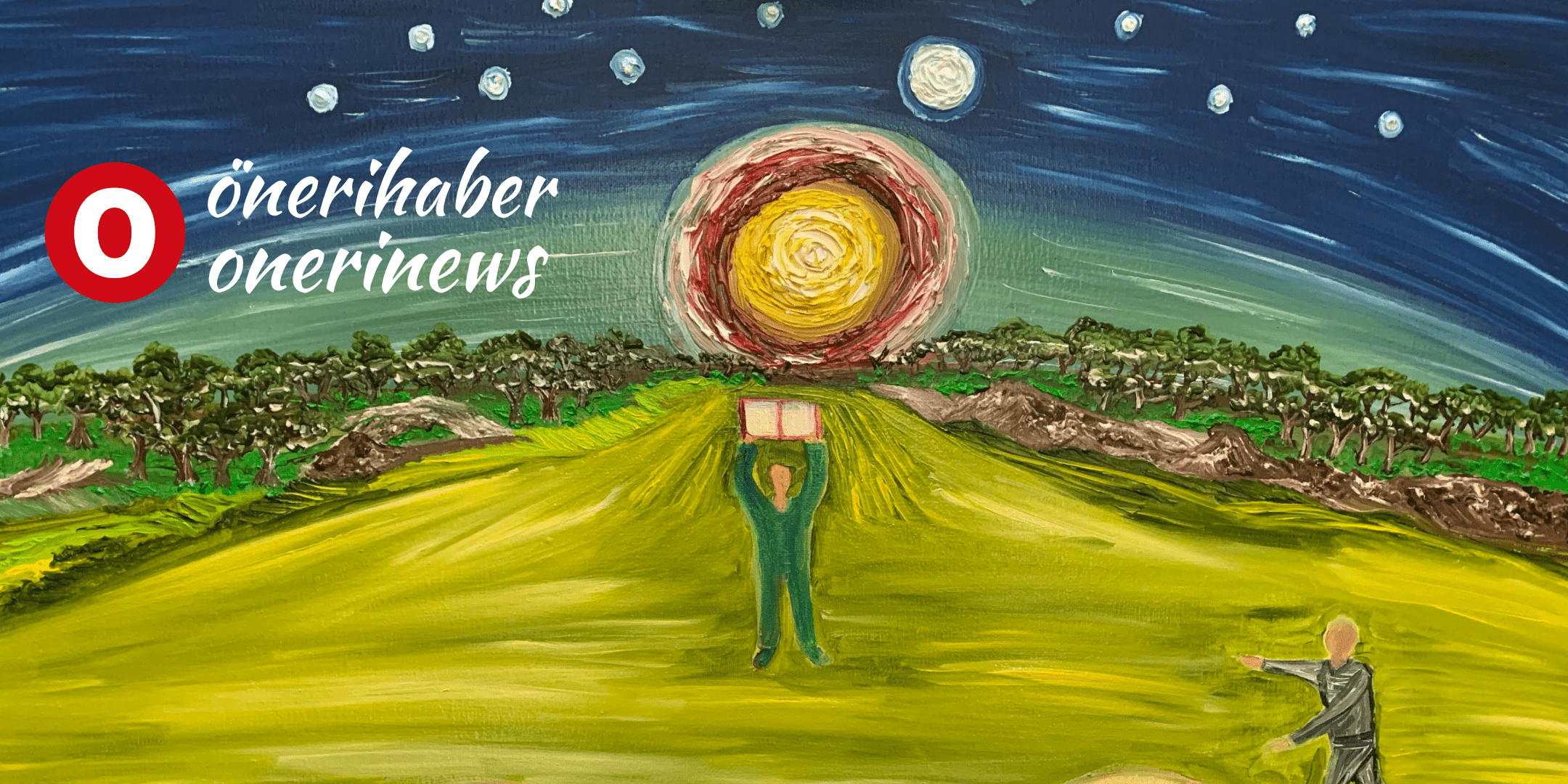ZALİM VE MAZLUM /// Cruel And Oppressed
(Below is the article in English.)
ZALİM ve MAZLUM
Zenginlik iki türlüdür. Maddi zenginlik ve manevi zenginlik. Fakirlik de iki türlüdür. Maddi fakirlik ve manevi fakirlik. Nedense bu ikisi genellikle ters işler! Maddi olarak zenginleştikçe manevi fakirleşme başlar. İnsan mağrur olur, Yaradan’ı unutur ve zalimlik başlar. Maddi fakirlik başlayınca da mazlum oluruz. Manevi değerler öne gelmeye başlar. Yaradan’a sığınmak, eşitlik, hürriyet gibi değerler öne çıkar.
Kuran’da zenginlik ve fakirliğe örnek olarak gösterilen iki adam var. Adamlardan biri zengin, mağrur, Yaradan’ı unutmuş. Diğer adam fakir, şükür ediyor, Yaradan’a sığınıyor.
Bu adamlardan birinin, iki üzüm bağı var.
18/Kefh/32- Onlara şu iki adamı örnek ver: Onlardan birine iki üzüm bağı vermiş, bağların çevresini hurmalarla donatmış, ikisinin arasına da bir ekinlik koymuştuk.
18/kefh/33-İki bağın ikisi de yemişlerini vermiş, hiçbir şey noksan bırakmamış, ikisinin ortasından bir de nehir akıtmışız.
18/kefh/34-35-36- da, Zengin adam Fakire “ben senden zenginim ve insanlar içinde senin değil, benim itibarım var der. Kendi malının asla yok olamıyacağını söyler. Kıyamet falan da yok der.
Diğer adamın fakir olduğunu görüyoruz..Fakirin inancı var. Zengin adama şunları der:
18/Kefh/37-38-39-40-41-de: “Seni bir topraktan, sonra bir kan pıhtısından yaratan Allah’a ortak olma. Allah benim Rabbim’dir. Beni fakirim diye küçük görme. Bilemezsin senin malını yok eder, bana daha fazla verir.”der.
Zenginin tarlasının suyu çekilir ve bütün malı gider. Allah’ı unuttuğuna pişman olur.
Bu bir örnektir bizlere. Dünya malına güvenip kibirlenmemeliyiz. Allah’ı unutmamalıyız. Allah’ın örneklerinin sayısı ve manası çoktur. Bu iki adamı zengin ülkeler ve fakir ülkele olarak da düşünebiliriz. Böylece bu ayetlerle Allah hem zengin kişilere, hem de zengin ülkelere hitap etmiş oluyor. Mazlum kişilere ve milletlere karşı. Mülkün sahibi benim. Bunu asla unutmayın. Ben daima mazlum kişilerin ve milletlerin yanındayım diyor.
Yazan: Hale Eralp
–
–
ENGLISH
CRUEL AND OPPRESSED
Wealth is of two kinds. Material wealth and spiritual wealth. Poverty is of two kinds. Material poverty and spiritual poverty. For some reason, these two usually do the opposite! As the material riches, spiritual impoverishment begins. Man becomes proud, forgets God, and cruelty begins. When financial poverty starts, we become oppressed. Spiritual values begin to come forward. Values such as taking refuge in the creator, equality and freedom stand out.
There are two men in the Qur’an that are shown as examples of wealth and poverty. One of the men has forgotten the rich, proud, the Creator. The other man is poor, thank God, he takes refuge in the creator.
One of these guys has two vineyards.
18 / Kefh / 32- Give them an example of these two men: We gave one of them two vineyards, equipped them with dates around the vineyards, and put a crop between them.
18 / kefh / 33-Both of the two vineyards had eaten, nothing left any defect, and a river was flowing between them.
18 / kefh / 34-35-36- the rich man says to the poor “I am rich of you and I have my reputation in people, not yours. He says his property can never be destroyed. He says no apocalypse.
We see the other man is poor. He tells the rich man:
18 / Kefh / 37-38-39-40-41-Don’t partner to Allah, Who created you from a soil, then from a blood clot. Allah is my Lord. Don’t underestimate me as poor. You can’t know he will destroys your property or maybe he will gives me more. ”
The rich’s field is dryed and all the goods are gone. He did regret forgetting God.
This is an example for us. We shouldn’t rely on the world’s property. We must not forget God. There are many examples and meanings of Allah. We can think of these two men as rich countries and poor countries. Thus, with these verses, Allah appeals to both rich people and rich countries. Against oppressed people and nations. I own the property. Never forget that. He says that I am always with the oppressed people and nations.
Writer: Hale Eralp
–
–




